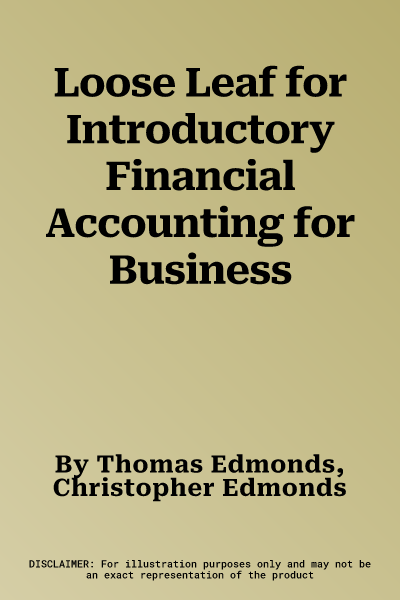Learning Financial Accounting can often feel like learning a foreign
language to students. Before students even grasp the underlying concepts
of Accounting, they are immersed in unfamiliar terms, and before
students fully realize the purpose of financial statements, they are
asked to make detailed recording procedures. This early emphasis on
terminology and recording can be a struggle for non-accounting majors to
see the relevancy, leading to increased dropouts and higher failure
rates. This creates a challenge for Financial Accounting instructors,
who must balance the need to engage and retain non-majors while fully
preparing Accounting majors for the next level.
The authors of Introductory Financial Accounting for Business offer a
solution emphasizing an analytical approach to Accounting - teaching
students to think like business professionals and speak in terms of
bottom-line consequences: How will a given transaction impact my overall
business? How can I make better business decisions whether I'm an
accountant, manager, or entrepreneur?
Business leaders are demanding that new graduates have these critical
thinking skills in order to handle a rapidly changing modern business
environment. Today's students will encounter new technological advances
in automated data capture, data analytics, and artificial intelligence -
processes that are automating traditional recording procedures. Rather
than tallying transactions, students will be required to analyze and
interpret data, making decisions early and often and thinking like
business professionals. The Edmonds/Olds team's fresh approach and
modern pedagogy helps prepare students for their business careers.

